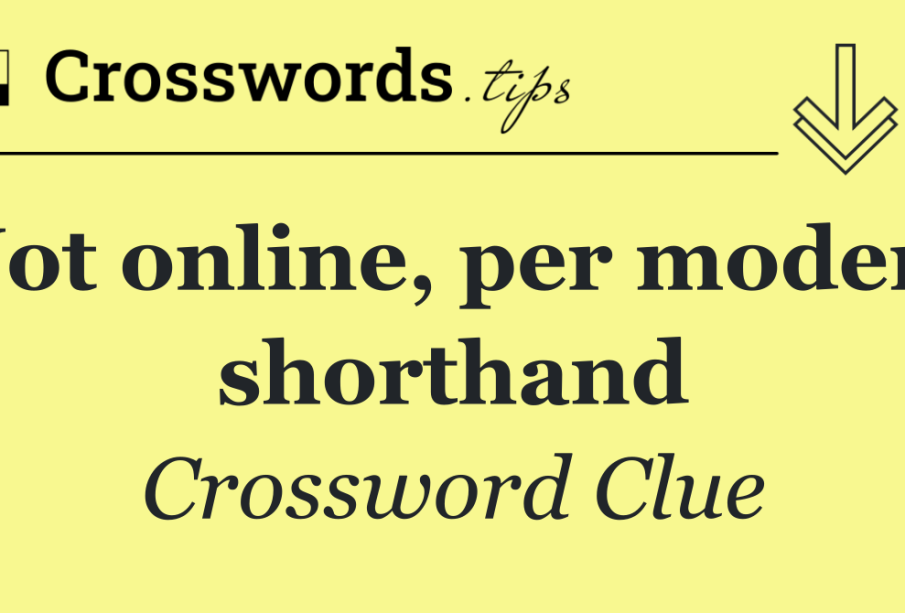Exploring ‘Not Online’ in Modern Shorthand Communication

Introduction
In an increasingly connected world, the way we communicate has evolved dramatically, especially within digital platforms. One such phrase that has emerged in modern shorthand is ‘not online’. This expression succinctly conveys a user’s absence from digital interactions, particularly in real-time communication. Understanding its significance helps gauge the dynamics of online engagement and the implications for personal and professional communication.
The Rise of Shorthand in Digital Communication
Modern shorthand has become prevalent in various forms of online interaction, including instant messaging, social media, and email. As attention spans shorten and the pace of communication accelerates, users have adopted abbreviations and acronyms to save time and convey messages quickly. The phrase ‘not online’ summarizes a user’s current status, helping to manage expectations in relational contexts.
Contextual Importance
When someone states they are ‘not online’, it indicates they are not available for immediate interaction. This can apply to various platforms, such as online gaming, chat rooms, and even professional workspaces using collaboration tools. For example, in remote work settings where team members are expected to be readily available, communicating ‘not online’ signals others to refrain from expecting immediate responses, thereby fostering clearer communication norms.
Impact on Relationships
The phrase ‘not online’ can also be pivotal in maintaining healthy boundaries between personal and digital life. Individuals often use it to indicate their offline status, allowing them to disengage from work or social obligations. This usage underscores the importance of digital detox periods in maintaining mental health and interpersonal relationships, as it emphasizes the need for downtime away from the constant barrage of notifications.
Conclusion
As digital communication continues to evolve, so too will the language we use to express ourselves. The phrase ‘not online’ may seem simple, but it encapsulates a broader understanding of availability, boundaries, and expectation management in our interconnected lives. As users become more adept at utilising such shorthand, they navigate their digital engagement more effectively. Ultimately, understanding and employing terms like ‘not online’ will significantly shape interactions in both casual and professional settings, ensuring that individuals can balance their online presence while prioritising mental well-being.








